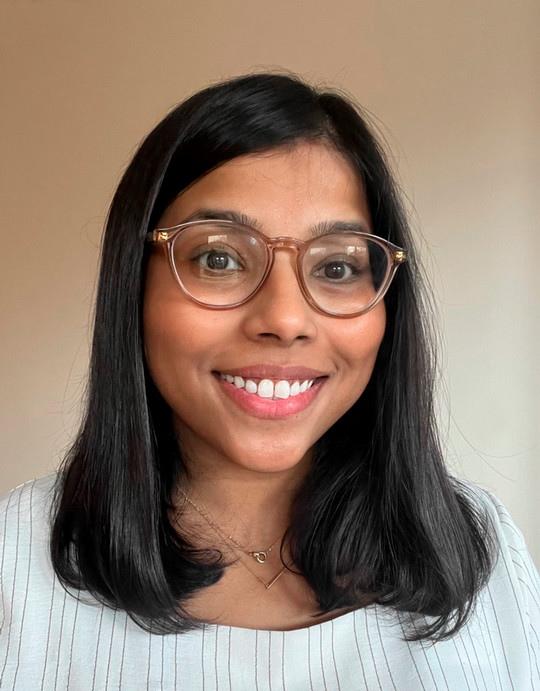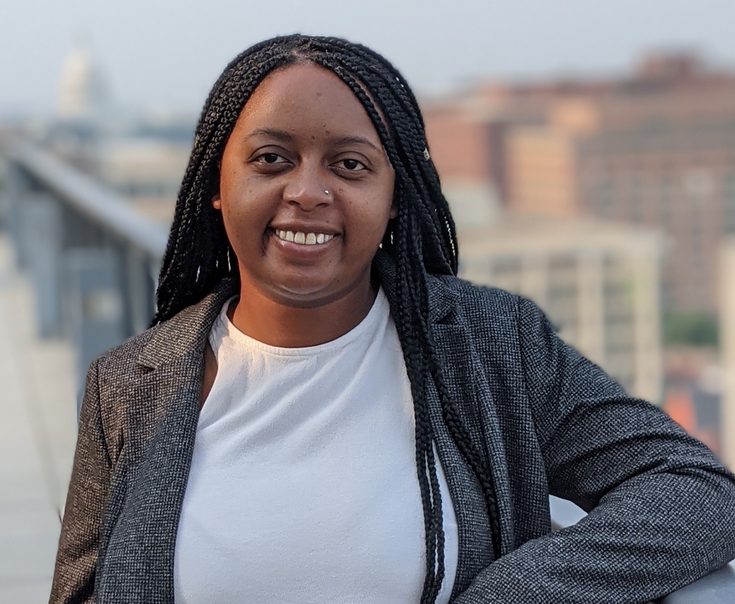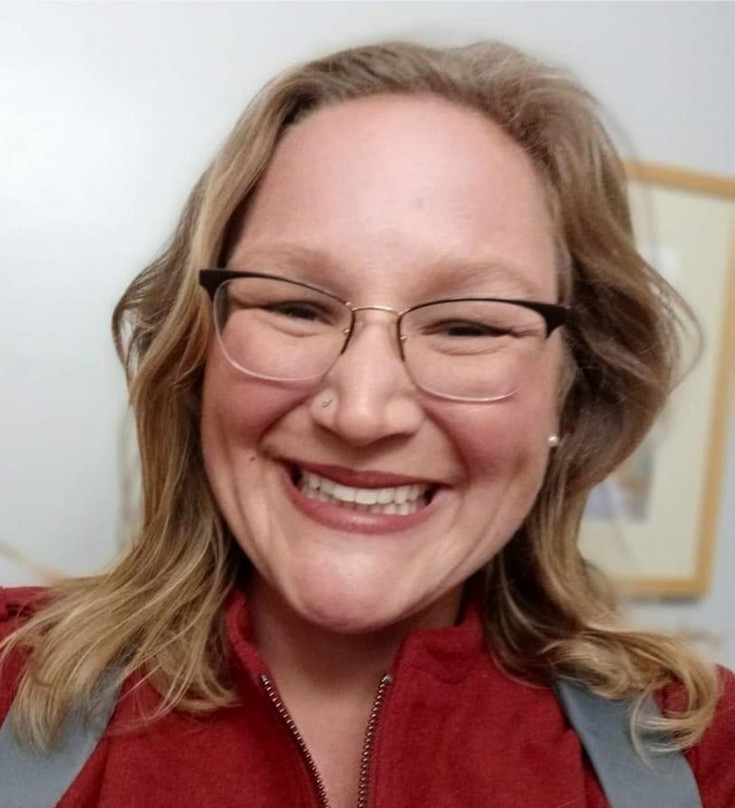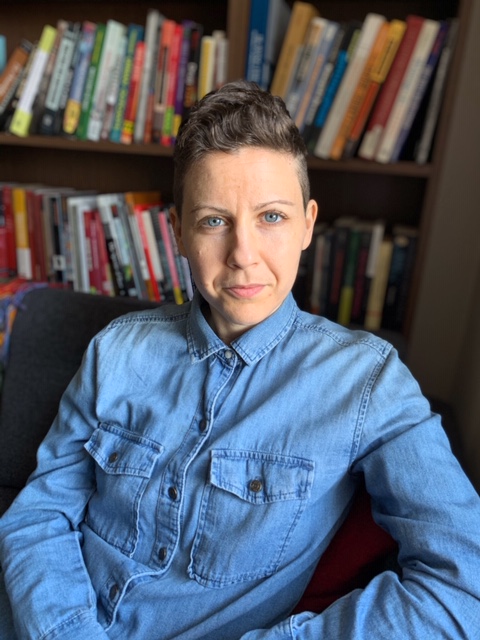Medical Anthropology Job Talks December 2023
The Brandeis Anthropology Research Seminar (BARS) is a bi-weekly yearlong seminar that meets on Friday afternoons in Schwartz 103 (except where noted below). The series includes anthropology colloquia presented by invited guests and Brandeis anthropology faculty, alternating with workshops, reading groups and presentations by graduate students. For more information, contact Laurel Carpenter.

November 30, 2023
12:30 - 2:00 p.m., Thursday, November 30
Schwartz 103
Since the recent democratization of the Maldives, a Sunni-Islamic South Asian nation in the Indian Ocean, the Greater Male’ Region (GMR) has been the site of rapid social reform efforts. First, I highlight how three public discourses intersect to produce an imperative to narrate the trauma of sexual violence, which I term “disclosure imperatives.” Second, I draw on person-centered narratives of Maldivian women who have experienced childhood sexual abuse to understand how disclosure imperatives are experienced. Using a critical phenomenological approach to analyzing language, I show how disclosure imperatives shape illness experiences and women’s subjectivities, and lead to new forms of sociality, illuminating the intimate entanglements of individual subjectivities and broader social processes of change.
Anu Ahmed is a medical and psychological anthropologist with a research focus on narratives and discourse, intersubjectivity, and cultural practices of moral self-cultivation. Her dissertation research examines how the modernization projects of the Sunni-Islamic South Asian nation of the Maldives is transforming a cultural category of (ill) personhood among Muslim-Dhivehin, and the ways in which persons experiencing nafsānī bali (“self-illness”) and their kin construct themselves as ethical, ‘modern’ persons in this shifting context. This research has contributed to the revisions of the Maldives’ “National Mental Health Strategic Action Plan 2022-2026.” In addition to undertaking anthropological research, Anu enjoys teaching writing at Boston University and the company of rescued rabbits.
December 1, 2023
 2:30 - 4:00 p.m., Friday, December 1
2:30 - 4:00 p.m., Friday, December 1
Schwartz 103
Devices are critical to organizing scientific, technological, and political work (Ballestero and Oyarzun 2022). This lecture demonstrates how different devices come to bear on the practice and teaching of dermatology in the United States. Both historically and today, dermatology has often ignored dark skin and the particularities of diagnosing and managing skin disease in dark-skinned patients. This lecture demonstrates the centrality of devices in stabilizing these exclusions. I suggest that devices—the Fitzpatrick Skin Phototyping Scale—have been used in dermatology to the effect of excluding and/or disadvantaging people of color, especially the darkest of patients and those with the tightest of curls. In other words, anti-Black devices continue to shape how dermatologists approach patients’ concerns, even as the specialty attempts to be more inclusive. I argue that the uncritical use of these devices produces acceptable failures: circumstances in which misdiagnosis, mistreatment, and misunderstanding become not only common but accepted responses to approaching dark skin.
Yesmar Oyarzun is a doctoral candidate in the Department of Anthropology at Rice University in Houston, Texas. Yesmar conducts research on social difference and the relationships between race, science, and biomedicine, incorporating a mix of ethnographic and humanistic methodologies. Her dissertation project is funded by the National Science Foundation and the American Association of University Women. The dissertation investigates the nature of dermatology’s so-called “problem with skin color.” The project followed dermatologists and trainees as they taught, learned, and did dermatology across the United States from 2020-2023. With the support of the Baylor Institute for Oral History, Yesmar has also conducted an oral history project documenting the development of ethnic skin and skin of color dermatology.

December 4, 2023
12:30 - 2:00 p.m., Monday, December 4
Schwartz 103
From 1995 to 2001 314,000 people were sterilized in Peru under President Alberto Fujimori’s National Program of Reproductive Health and Family Planning. Over twenty years later, forcibly sterilized Runa (Quechua) women are still beset by illnesses that keep them from reproducing their communities biologically, socially, and spiritually. Mosoq Pakari Sumaq Kawsay (A New Dawn for Good Living) is a Runa women-run healing house dedicated to helping affected women reintegrate into their meaningful, relational worlds. I argue that through this healing work MPSK is helping power a “radical resurgence" of Runa lifeways and futures. The defense and cultivation of the socionatural worlds necessary to Indigenous well-being and futures is, what I am calling, the “cosmopolitics of health.”
Dr. Lucía Isabel Stavig is postdoctoral researcher with the Dispossession in the Americas: Extraction of Bodies, Lands, and Heritage from la Conquista to the Present project at the University of Pennsylvania. She received a PhD in Cultural Medical Anthropology from University of North Carolina at Chapel Hill (2022), a Master’s in Anthropology from the University of Lethbridge, Canada (2017), a Master’s in Justice and Social Inquiry from Arizona State University (2013), and a Bachelor of Arts from New College of Florida (2010). Her research appears in Signs, Latin American and Caribbean Ethnic Studies, and Anthropology and Humanism, and in various public venues. Her work in reproductive and Indigenous justice follows the efforts of Indigenous peoples from southern Peru to Canada to heal from various forms of colonial reproductive violence including forced sterilization, forced contraception, obstetric violence, land dispossession, and genocide. Dr. Stavig’s work particularly centers the role of Indigenous women in efforts to create Indigenous futures for generations to come.

December 6, 2023
12:30 - 2:00 p.m., Wednesday, December 6
Schwartz 103
This talk explores Medicaid-funded institutions in Northeast U.S. cities as a form of poverty governance in the United States. Medicaid-funded institutions have entered into a dynamic relationship with street-based poverty over the past few decades, marking an important shift in the politics of health in the U.S. city. Attending closely to the lived experiences of people moving through Medicaid-funded care in Philadelphia, as well as exploring the broader political and economic context in which Medicaid operates, the talk argues that care in these institutions becomes “boundary-work”. In other words, care itself constitutes the social and symbolic boundaries between the world of the streets and the world of Medicaid-funded treatment. Care is something that not only moves interpersonally within institutional walls, but something that moves structurally across these institutions and the streets people navigate once they leave them. This approach to Medicaid-funded care has the effect of politicizing institutions of privatized health care and placing them into relationship with the politics of inequality, welfare, and incarceration in the U.S. city.
Tali Ziv is currently a postdoctoral fellow at Johns Hopkins University, having received her PhD in Anthropology from the University of Pennsylvania, and her MPH from the University of Michigan. Tali's research centers the connections between the community, drug-treatment centers, and the courts/jails to explore dynamics of care as they unfold across and between these institutions to govern poverty in the urban U.S. Situated at the intersection of community-based health services and mass incarceration, her research charts the processes, both historical and contemporary, through which care emerges from the political-economic relations that govern racialized, urban inequality. Spanning the fields of Anthropology, Public Health, and Africana Studies, Tali attends to the everyday experiences of giving and receiving health services in contexts of addiction, incarceration, and community reentry from jail/prison.